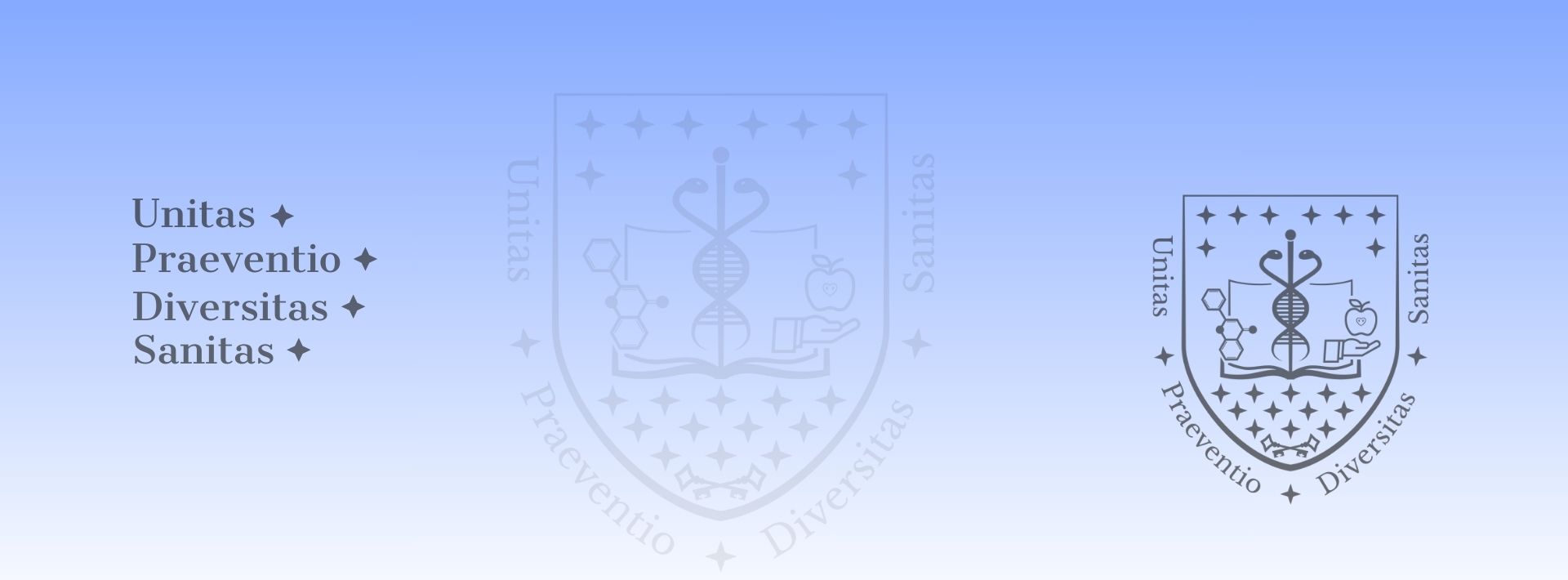Daten
Offizielle Daten in der Fachveröffentlichung für das folgende akademische Jahr: 2024-2025
Lehrbeauftragte/r
-
Kiss István Zoltán (Népeg)
professor,
Department of Public Health Medicine -
Semesterwochenstunden
Vorlesungen: 28
Praktika: 14
Seminare: 0
Insgesamt: 42
Fachangaben
- Kode des Kurses: OSK-MEN-T
- 3 kredit
- Dentistry
- Clinical modul
- autumn
OSP-MI1-T finished , OSP-KO2-T finished
Zahl der Kursteilnehmer für den Kurs:
min. 5 – max. 24
Thematik
Public Health represents the preventive side of medicine. The subject deals with primary, secondary and tertiary prevention of the most challenging diseases of public health.
The aims are to exam the process of disease development and demonstrate the possibilities of prevention on individual and community levels.
Vorlesungen
- 1. Leading causes of mortality and morbidity worldwide. - Kiss István Zoltán (Népeg)
- 2. The definition of health and disease. Health determinants. - Kiss István Zoltán (Népeg)
- 3. Levels of prevention. - Berényi Károly
- 4. Demography. - Berényi Károly
- 5. Epidemiology and prevention of cardiovascular diseases I. - Kiss István Zoltán (Népeg)
- 6. Epidemiology and prevention of cardiovascular diseases II. - Kiss István Zoltán (Népeg)
- 7. Epidemiology and prevention of other non-communicable diseases. (diabetes, obesity) - Kiss István Zoltán (Népeg)
- 8. Epidemiology and prevention of other non-communicable diseases. (osteoporosis) - Kiss István Zoltán (Népeg)
- 9. Epidemiology and prevention of cancer I. - Kiss István Zoltán (Népeg)
- 10. Epidemiology and prevention of cancer II. - Kiss István Zoltán (Népeg)
- 11. Epidemiology and prevention of other non-communicable diseases (gastrointestinal diseases) - Lohner Szimonetta Ivett
- 12. Epidemiology and prevention of other non-communicable diseases (respiratory diseases) - Lohner Szimonetta Ivett
- 13. Basics of nutrition. Nutritional habits, healthy diet I. - Szabó István (Népeg)
- 14. Basics of nutrition. Nutritional habits, healthy diet II. - Szabó István (Népeg)
- 15. Role of nutrition in the development of major chronic non-communicable diseases I. - Kiss István Zoltán (Népeg)
- 16. Role of nutrition in the development of major chronic non-communicable diseases II. - Kiss István Zoltán (Népeg)
- 17. Basics of infectious diseases. - Bőszné Murányi Edit
- 18. Epidemiology of infectious diseases: global and European situation. - Bőszné Murányi Edit
- 19. Main categories of infectious diseases and their characterization I. - Bőszné Murányi Edit
- 20. Main categories of infectious diseases and their characterization II. - Bőszné Murányi Edit
- 21. Vaccination. - Kiss István Zoltán (Népeg)
- 22. Nosocomial infections. - Gyöngyi Zoltán
- 23. Water hygiene. - Bérczi Bálint Dániel
- 24. Soil pollution. - Bérczi Bálint Dániel
- 25. Air hygiene. - Varga Csaba (Népeg)
- 26. Healthy environment at workplace. Health effects of radiation, noise, vibration, dusts, chemicals. - Szabó István (Népeg)
- 27. Occupational medicine in the dental praxis. - Szabó István (Népeg)
- 28. Occupational diseases. Ergonomics. - Szabó István (Népeg)
Praktika
- 1. Basics of epidemiology I. - Szabó István (Népeg)
- 2. Basics of epidemiology II. - Szabó István (Népeg)
- 3. Screening. - Szabó István (Népeg)
- 4. Social risk factors. - Berényi Károly
- 5. Epidemiology of head and neck cancers. - Kiss István Zoltán (Népeg)
- 6. Health promotion, health education. - Horváth-Sarródi Andrea
- 7. Nutrition related diseases and their prevention. Dietary assessment. - Szabó István (Népeg)
- 8. Food borne infectious diseases, food poisoning and their prevention. - Berényi Károly
- 9. Practical aspects of infectious disease prevention. - Bőszné Murányi Edit
- 10. Basics of epidemiology III. - Szabó István (Népeg)
- 11. Epidemiology of sexually transmitted diseases and viral hepatitis. - Szabó István (Népeg)
- 12. Hospital hygiene. Sterilization, disinfection. - Gyöngyi Zoltán
- 13. Major risk factors in disease development: smoking - Gyöngyi Zoltán
- 14. Major risk factors in disease development: drug abuse and alcohol consumption. - Horváth-Sarródi Andrea
Seminare
Materialien zum Aneignen des Lehrstoffes
Obligatorische Literatur
Edit Paulik: Public Health and Preventive Medicine, Medicina Publishing House, Budapest 2013.
Vom Institut veröffentlichter Lehrstoff
Educational material uploaded on Neptun.
Skript
Empfohlene Literatur
Voraussetzung zum Absolvieren des Semesters
Participation in practicals is obligatory which is registered.
Absences should not exceed 2x45 min. Otherwise signature of grade book is denied.
Semesteranforderungen
-
Möglichkeiten zur Nachholung der Fehlzeiten
-
Prüfungsfragen
Questions of choice Public Health
1. Leading causes of mortality and morbidity worldwide.
2. The definition of health and disease. Health determinants.
3. Levels of prevention.
4. Demography.
5. Epidemiology and prevention of cardiovascular diseases.
6. Epidemiology and prevention of cancer.
7. Epidemiology and prevention of other non-communicable diseases: diabetes.
8. Epidemiology and prevention of other non-communicable diseases: obesity.
9. Epidemiology and prevention of other non-communicable diseases: osteoporosis.
10. Epidemiology and prevention of other non-communicable diseases: gastrointestinal diseases.
11. Epidemiology and prevention of other non-communicable diseases: respiratory diseases.
12. Basics of nutrition.
13. Nutritional habits, healthy diet.
14. Role of nutrition in the development of major chronic non-communicable diseases.
15. Basics of infectious diseases.
16. Epidemiology of infectious diseases: global and European situation.
17. Main categories of infectious diseases and their characterization.
18. Vaccination.
19. Nosocomial infections.
20. Water hygiene.
21. Soil pollution.
22. Air hygiene.
23. Healthy environment at workplace.
24. Health effects of radiation, noise, vibration, dusts, chemicals.
25. Occupational medicine in the dental praxis.
26. Occupational diseases. Ergonomics.
27. Basics of epidemiology.
28. Social risk factors.
29. Health promotion, health education.
30. Epidemiology of head and neck cancers.
31. Nutrition related diseases and their prevention.
32. Food borne infectious diseases, food poisoning and their prevention.
33. Public health importance of oral diseases.
34. Epidemiology and prevention of caries.
35. Epidemiology of sexually transmitted diseases.
36. Epidemiology of viral hepatitis.
37. Hospital hygiene. Sterilization, disinfection.
38. Practical aspects of infectious disease prevention.
39. Major risk factors in disease development: smoking
40. Major risk factors in disease development: alcohol consumption.
Prüfer
- Berényi Károly
- Gyöngyi Zoltán
- Kiss István Zoltán (Népeg)
- Rákosy-Vokó Zsuzsa
- Szendi Katalin
- Varga Csaba (Népeg)
Praktika, Seminarleiter/innen
- Berényi Károly
- Bőszné Murányi Edit
- Gyöngyi Zoltán
- Horváth-Sarródi Andrea
- Szabó István (Népeg)
